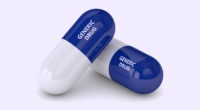Bispecific ADCs: The Next Targeted Therapy?
Antibody drug conjugates (ADCs) are a growing modality in the oncology drug market. Bispecific ADCs are an emerging subset of ADCs with several investigational drug candidates advancing. The latest developments in the ADC drug market.
By Patricia Van Arnum, Editorial Director, DCAT, pvanarnum@dcat.org
ADCs: a snapshot view
Antibody drug conjugates (ADCs) continue to be a strong and growing sector of the global oncology drug market, which represents the largest therapeutic sector in the global bio/pharmaceutical industry on a value basis. ADCs are composed of both biologic and small-molecule components and consist of a small-molecule compound (for oncology applications, a cytotoxic compound) linked to a monoclonal antibody. Industry estimates place the global ADC market at approximately $13 billion, and the ADC sector continues to attract the interest of both large and small bio/pharma companies.
Two new ADCs enter the market
To date (as of September 2025), there have been 15 ADCs approved by the US Food and Drug Administration (FDA), with two new ADCs approved thus far in 2025 (see Table I at end of article).
In May (May 2025), AbbVie was granted accelerated approved by FDA for Emrelis (telisotuzumab vedotin) for treating a certain form of locally advanced or metastatic non-squamous non-small cell lung cancer (NSCLC). Specifically, the drug was approved for patients with metastatic, non-squamous NSCLC with high c-Met protein overexpression who have received a prior systemic therapy.
Emrelis is AbbVie’s first internally developed solid tumor medicine, its first solid tumor FDA approval in lung cancer, and its second FDA-approved ADC. Its other commercial ADC, Elahere (mirvetuximab soravtansine-gyxn) for treating ovarian cancer, was gained by its $10.1-billion acquisition of ImmunoGen in early 2024. That acquisition also netted AbbVie ADC pipeline candidates, including IMGN151, a Phase I FRα ADC for treating ovarian cancer with the potential for expansion into other solid tumor indications, and pivekimab sunirine, currently in Phase II, an anti-CD123 ADC targeting blastic plasmacytoid dendritic cell neoplasm (BPDCN), a rare blood cancer, which was granted FDA breakthrough therapy designation for the treatment of relapsed/refractory BPDCN. It is also being evaluated for treating acute myeloid leukemia.
AbbVie also has several other ADC drug candidates: ABBV-319 as a single-agent and as a combination therapy for treating B-cell malignancies; ABBV-706 for treating small-cell lung cancer, central nervous system tumors, and neuroendocrine carcinomas; ABBV-969 for treating prostate cancer; Temab-A (telisotuzumab adizutecan) (ABBV-400) for treating non-small cell lung cancer, colorectal cancer, and gastroesophageal adenocarcinoma.
The other ADC approved this year (2025) is from AstraZeneca and Daiichi Sankyo, which received FDA approval for Datroway (datopotamab deruxtecan) for treating certain forms of breast cancer (unresectable or metastatic hormone receptor (HR)-positive, HER2-negative breast cancer in patients who have received prior endocrine-based therapy and chemotherapy for unresectable or metastatic disease). Datroway is the second ADC approved from a collaboration between AstraZeneca and Daiichi Sankyo. The other ADC from that collaboration is Enhertu (trastuzumab deruxtecan) for treating HER2-positive breast cancer, which is one of the top-selling ADCs. In 2024, Enhertu’s combined sales by AstraZeneca and Daiichi Sankyo reached $3.75 billion.
Bispecific ADCs: an emerging targeted therapy
Bispecific antibody-drug conjugates (bsADCs) are an emerging and niche therapeutic area that may present advantages over traditional ADCs. They combine the targeting ability of a bispecific antibody—which binds to two different targets—with the potency of a drug conjugate. With the ability to target multiple antigens, bsADCs may present ways to enhance the therapeutic ability of ADCs by increasing selectivity and reducing off-target toxicity.
A recent analysis by GlobalData, a market and business intelligence firm, estimates that there are approximately 211 bsADCs in the development pipeline, representing only 14% of the 1,554 active ADCs in development, with approximately 84% of bsADCs in either early development stages of preclinical or in the discovery phase. However, the GlobalData analysis points to four bsADCs that are in Phase III development: SystImmune’s and Bristol Myers Squibb’s (BMS) izalontamab brengitecan, Amgen’s MariTide (maridebart cafraglitide), Shanghai JMT-Bio Technology’s JSKN-003, and Chia Tai Tianqing Pharmaceutical Group’s TQB-2102.
Three of these four Phase III drug candidates are oncology-based (SystImmune’s/BMS’ izalontamab brengitecan, Shanghai JMT-Bio Technology’s JSKN-003, and Chia Tai Tianqing Pharmaceutical Group’s TQB-2102). Amgen’s MariTide (maridebart cafraglitide) is under development for obesity and Type 2 diabetes.
In August (August 2025), SystImmune and BMS received breakthrough therapy designation by the US Food and Drug Administration for izalontamab brengitecan for the treatment of locally advanced or metastatic non-small cell lung cancer with epidermal growth factor (EGFR) exon 19 deletions or exon 21 L858R substitution mutations whose disease has progressed on or after treatment with an EGFR tyrosine kinase inhibitor and platinum-based chemotherapy. Izalontamab brengitecan targets both epidermal growth factor receptor and human epidermal growth factor receptor 3 (EGFR x HER3) with a topoisomerase 1 inhibitor payload. It is being developed by Biokin in China and jointly developed by SystImmune and BMS under a collaboration and exclusive license agreement in territories outside of China.
Amgen’s MariTide (maridebart cafraglitide) is a bispecific glucagon-like peptide 1 (GLP-1) receptor agonist and glucose-dependent insulinotropic polypeptide receptor (GIPR) antagonist being investigated for the treatment of obesity and Type 2 diabetes.. It is a peptide-antibody conjugate molecule with a dual mechanism of action simultaneously activating GLP-1 and inhibiting GIP pathways and potentially may have stronger effect on weight loss than targeting either GLP-1 or GIP receptors alone, according to information from the company. If approved, it would represent the first non-oncology approval for an ADC product, according to the GlobalData analysis.
Table I: Antibody Drug Conjugates Approved by US Food and Drug Administration
| Company | Drug | Indication | Year of first FDA approval |
| AbbVie* | Elahere (mirvetuximab soravtansine-gyxn) | Ovarian cancer | 2022 |
| AbbVie | Emrelis (telisotuzumab vedotin) | Locally advanced or metastatic non-squamous non-small cell lung cancer | 2025 |
| ADC Therapeutics | Zynlonta (loncastuximab tesirine-lpyl) | Large B-cell lymphoma | 2021 |
| AstraZeneca | Lumoxiti (moxetumomab pasudotox) | Hairy cell leukemia | 2018 |
| AstraZeneca/Daiichi Sankyo | Enhertu (trastuzumab deruxtecan) | HER2-positive breast cancer | 2019 |
| AstraZeneca/Daiichi Sankyo | Datroway (datopotamab deruxtecan) | Metastatic, HR+, HER2-breast cance | 2025 |
| Gilead Sciences** | Trodelvy (sacituzumab govitecan) | Triple-negative breast cancer | 2020 |
| GSK | Blenrep (belantamab mafodotin-blmf) | Multiple myeloma | 2020 |
| Pfizer | Mylotarg (gemtuzumab ozogamicin) | Relapsed acute myelogenous leukemia | 2000, 2017 |
| Pfizer/ Takeda*** | Adcetris (brentuximab vedotin) | Relapsed HL and relapsed sALCL | 2011 |
| Pfizer | Besponsa (inotuzumab ozogamicin | CD22-positive B-cell precursor acute lymphoblastic leukemia | 2017 |
| Pfizer/ Astellas*** | Padcev (enfortumab vedotin) | Urothelial cancer | 2019 |
| Pfizer*** | Tivdak (tistotumab vedotin-tftv) | Cervical cancer | 2021 |
| Roche | Kadcyla (trastuzumab emtansine | HER2-positive metastatic breast cancer | 2013 |
| Roche | Polivy (polatuzumab vedotin-piiq | Diffuse large B-cell lymphoma | 2019 |
**Gilead Sciences acquired Immunomedics in 2020 and with the acquisition, Trodelvy (sacituzumab govitecan)
***Pfizer acquired Seagen (formerly Seattle Genetics) in 2023 and with the acquisition, Adcetris (brentuximab vedotin), Padcev (enfortumab vedotin) and Tivdak (tistotumab vedotin-tftv) Tivdak
Source: Company information and US Food and Drug Administration







